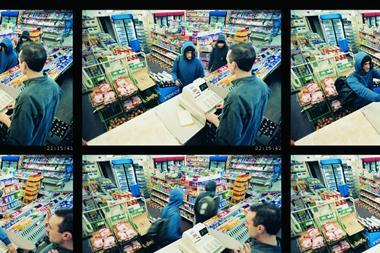Did you hear the one about the retailer who miscalculated his stock value by £15,000? Or what about the guy who had £2,000 stolen from right under his nose? They might sound like set-ups for bad jokes, but these are in fact genuine tales of woe, the kind that get relayed to stocktakers on a regular basis.
When a shop is changing hands Victor Lightfoot, who runs stocktaking firm Lock, Stock & Barrel, is often called upon. “The first question we’ll ask is how much stock they’re carrying, and many retailers simply don’t have a clue. The major problem is when an accountant says the stock value is worth £10,000 and it turns out to be £25,000.”
Former Londis retailer and stocktaking expert Nigel Appleton explains that under-valuing your business isn’t just a problem if you’re trying to sell it. It can also leave you with major issues to overcome with the Inland Revenue. “When you set up your accounts your stock-in-hand is a taxable asset, so if you put down that you have £15,000 when you actually have £25,000, you’ve not been paying what you should.”
It’s easy to assume that you have the same amount of stock year on year, but this can change over time as retailers alter their product ranges, and issues such as theft can cause major discrepancies, too.
A failure to do stockchecks can mean theft problems go unnoticed, adds Lightfoot. “If the retailer has a dishonest employee who is slowly milking the business, then they may find cashflow gets difficult and they start to struggle. Over the years they will slowly lose touch with their stock and can end up running blind, to a certain extent.”
One retailer who isn’t taking any chances is Warwickshire-based Bargain Booze retailer Jimmy Dhaliwal. “We carry out stocktaking every two weeks because all our products are high value. It gives me better control of what’s going on in each of my four stores.”
Thanks to regular stockchecks, Jimmy noticed that some of his inventory was going astray. “I had a situation where the epos system told me I’d sold 18 of my 26 whisky bottles, but there were only two on the shelf and four out back, so two were missing. After searching the store I pulled up my staff on it and one lad owned up to the theft. He had been backdoor selling and he was dismissed instantly.”
Although a couple of bottles of whisky may not be a big deal, Jimmy explains that he may well have prevented a much larger problem. “One bottle of whisky doesn’t sound like much, but it’s still £12 a week, and once someone realises they can get away with one bottle, then what’s to stop them getting away with more?”
He states that regular stocktaking is an essential tool in preventing crime as the official punishments for stealing are not effective deterrents. “The problem is that the laws aren’t strict enough. If someone gets caught stealing a bottle of spirits, it will be counted as petty theft, meaning they’ll just get their wrists slapped and nothing more. If I want to keep theft to a minimum, I need to deal with it as soon as it starts.”
Central Stores in Cumbria also has its stock checked on a regular basis. “Over a period it’s possible to lose touch with your figures,” says owner Roger Atfield. “We’ve never uncovered anything major from running stockchecks, but it’s important to keep track of where you are.”
Andrew Porter, who runs Creightons of Finaghy Eurospar in Belfast, is also in support of stockchecks. “We carry out stocktakes quarterly in-house,” he says. “More and more we use suggested ordering, so we need to maintain accurate stock levels to ensure we are as precise as possible.”
While some retailers are clearly taking stockchecks seriously, others deem it unnecessary. Jeff Patterson of J Patterson Stocktakers says: “Everyone should have a stocktake at least once a year, but most people just let their accountants come up with a figure.”
This is often the case, agrees Lightfoot. “I’d say most of my clients bypass annual stocktakes. It used to form the basis of my income, but now it’s a small part of what I do.”
Jimmy is shocked that his fellow retailers fail to do stockchecks. “I find it astonishing,” he says. “Friends tell me that their staff wouldn’t dare steal from them, but that’s what I used to think.”
So why the reluctance? One of the major reasons is that advances in epos systems have made some people question their need, but Lightfoot believes that epos is an insufficient tool for stockchecking. “The only true way to get results is through a physical count. I’m not a huge fan of epos it’s great if used properly but that’s not often. The discrepancies you can get between your epos system and the actual count are horrendous. It doesn’t take account of broken produce, or stolen items.”
Patterson concurs: “Epos systems are only as good as the info you put into them. You have to have someone on a computer 24 hours a day to put produce in and out, and include re-sold products.”
Andrew has full epos at his store, but is still very much in favour of stocktaking. “You could have theft problems; issues with deliveries that come up short; or simply end up with the wrong figures because of people making mistakes. Stock-taking will always be relevant. I defy any retailer to run their store without running stockchecks.”
If you have decided to go ahead, the next call is whether to take it in-house or hire a third party. Andrew is all for a bit of DIY. “It’s not a big deal to me I have 10 staff in overnight and they use handheld machines to scan produce,” he says.
Jimmy also runs in-house stocktakes. “Me and my staff do the checks ourselves. Because we do them every two weeks it only takes a couple of hours as we’ve got it down to a tee.”
Managing your own stockchecks may be a good solution if you have trustworthy, experienced staff, but Patterson claims this is not always the case. “There are certain risks that come with taking a stockcheck in-house allowing a dishonest member of staff to count your stock means they can get away with fudging the figures.”
And even if your staff are counting stock properly, there are still other caveats. “You have to ensure you choose the right day of the week to carry out a stocktake,” says Appleton. “For example, in my old store I’d have had a main delivery on Friday, so on Thursday I might have £15,000-worth of stock, and on Friday I’d have £25,000.
“If you work in a big store where your turnover is £40,000-£50,000 a day and you get your stocktaking day wrong, your stock value could appear to rise from £60,000-£90,000 and put your accounts out.”
Cost is another reason why retailers take stockchecks in-house, but it doesn’t always work out cheaper, says Lightfoot. “People don’t realise that if you pay a stocktaking company then it comes out of your business expenses, which are tax deductible. Store owners end up doing it themselves either on a Sunday, which means closing the store, or overnight, which means paying staff extra, plus they end up with reams of paperwork. Quite often it’s more expensive than outsourcing. “
Adds Patterson. “Retailers think they’re saving money doing it themselves, but it’ll take them much longer than it will us.”
Roger agrees: “I use an outside company because that way if someone queries the value of the stock we have an independent valuation. Also, they’re so experienced at it that it’s done in half a day, rather than the two days it would take me and my staff.”
Whether you choose to stocktake yourself or employ an expert, the main point to remember is that regular stockchecks remain a vital part of keeping tabs on your figures. “I reckon that skipping stocktakes is probably costing some stores at least £5,000 a year in theft and breakages,” says Jimmy. “They are a key part of managing your store; it’s crazy not to have them regularly.”






















1 Readers' comment